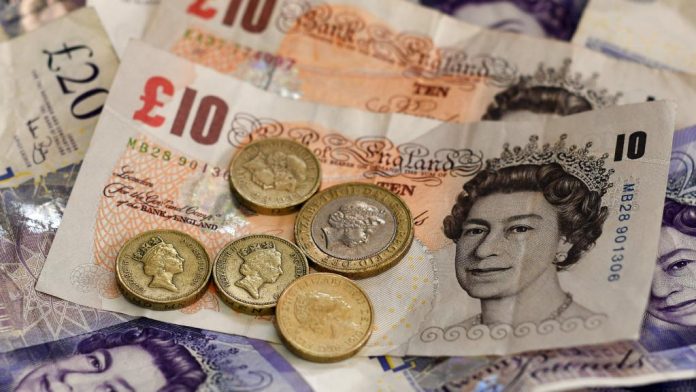LONDON: The pound is likely to be driven this week by the state of Brexit negotiations and UK politics, after losing support from bets on central bank policy tightening.
Sterling could see any slide exacerbated should it drop below $1.30, according to Morgan Stanley, with the resumption of Brexit talks, a fallout from a sexual harassment scandal and industrial data to provide direction. The currency has fallen for three weeks on concerns about Brexit and as the Bank of England failed to signal the start of a tightening cycle after raising rates on Thursday.
The market has pushed back bets on a hawkish central bank, which had provided a floor for a currency depressed by mixed economic data and the lack of agreement with the European Union. The UK is now looking for a breakthrough on key sticking points before an EU summit in December, to try to move towards discussions on a future trading relationship.
“The BOE has removed a key support for the pound,” said Georgette Boele, a currency strategist at ABN Amro Bank NV in Amsterdam. “Brexit-related news will likely give sterling more direction in the coming weeks.”
BOE Governor Mark Carney said that the next rate shift could depend on the outcome of Brexit. Money markets are now pricing in another 25-basis-point increase in September 2018, from August before Thursday’s decision. That could coincide with any Brexit deal, with the EU’s chief negotiator Michel Barnier wanting it finalised by October next year.
While officials resume discussion in Brussels on November 9, the UK government may be distracted by a sexual harassment scandal in Westminster, which has already brought down one senior cabinet minister. With Prime Minister Theresa May’s judgment being questioned and the government only having a slim majority in parliament, the issue is on traders’ radar as a tail risk for the currency, according to Nomura International Plc and Mizuho Bank Ltd.
The pound held its ground at $1.3070 in London on Friday and was set to lose 0.4 per cent on the week.
Unless the currency rebounds from a support line stemming from a low in April, a deeper correction may be coming as Bloomberg’s fear-greed indicator, which measures buying against selling strength, shows bears now control price action. Technical analysis suggests the latest move downward shows no sign of a reversal.
And with the process of leaving the EU casting uncertainty over the outlook, some economists have warned the BOE rate increase is a mistake. The latest readout on the economy will come from housing-price data on Tuesday and industrial production on Friday.
“We see further weakness in store for the pound over the medium term as economic data weaken,” wrote Morgan Stanley strategists led by Hans Redeker in a note to clients.



































